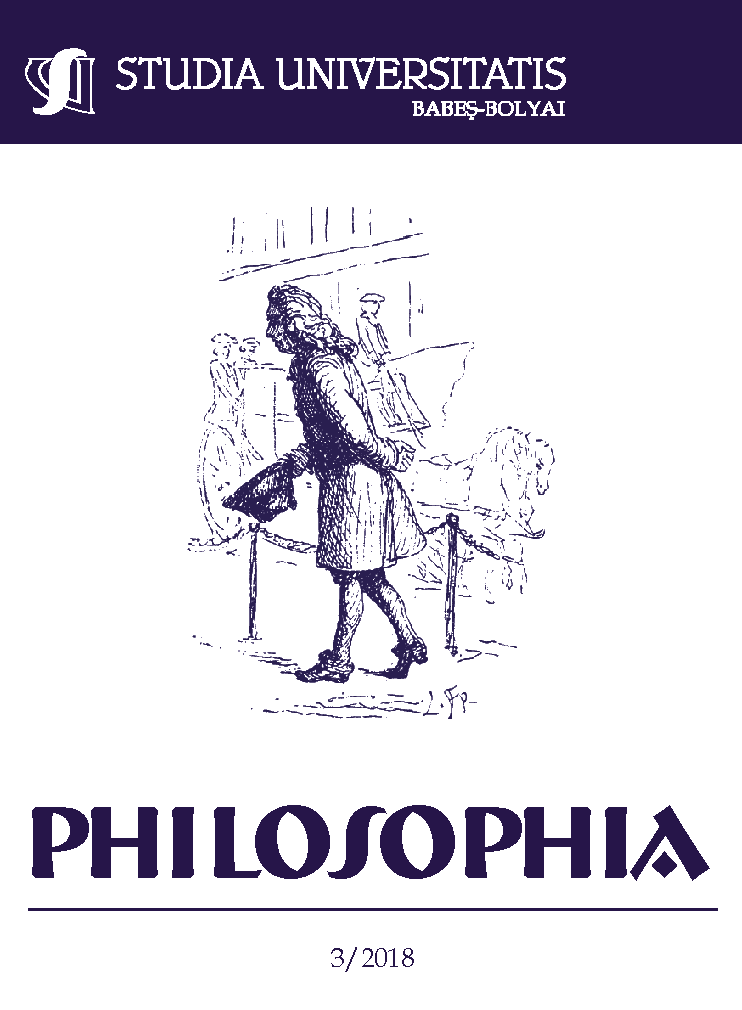MODAL EPISTEMOLOGY, REALISM ABOUT MODALITY, AND THE IMAGINATION
DOI:
https://doi.org/10.24193/subbphil.2018.3.03Keywords:
modal epistemology, necessary truth, metaphysical modality, Saul Kripke, Timothy Williamson, counterfactual.Abstract
The main aim of this paper is to provide a critical discussion of the relation between realist epistemologies of modality and the imagination. Two prominent realist accounts of modal knowledge are examined: a Kripkean one and Williamson’s counterfactual account. I argue that the constraint that Kripke believes should be imposed on the imagination in order to obtain, but also defend metaphysically necessary truths is too strong. This either makes it ineffective, or leads to serious doubts about Kripke’s famous examples of necessary a posteriori truths. The conceptual tension between a modal epistemology that follows Kripke’s suggestion and classicized Kripkean tenets in the philosophy of language is evinced in the analysis of Soames’ version of Kripkeanism. Williamson’s account follows the same line of imposing very strong constraints on the way we form or acquire knowledge of metaphysical necessity, which ultimately leads to similar doubts about its effectiveness. While this critique motivates some sceptical conclusions, it leaves the discussion about the force and extent of modal scepticism open.
References
Bealer, G. 2002. “Modal Epistemology and the Rationalist Renaissance.” In Tamar S. Gendler & John Hawthorne (eds.), Conceivability and Possibility. Oxford: Oxford University Press, pp. 71-125.
Boghossian, P. 2011. “Williamson on the a priori and the analytic.” Philosophy and Phenomenological Research, 82 (2): 488–497.
Burge, T. 1979. “Individualism and the mental.” Midwest Studies in Philosophy 4: 73–121.
Byrne, A. 2007. “Possibility and imagination.” Philosophical Perspectives, 21: 125–144.
Chalmers, D. J. 1996. The Conscious Mind: In Search of a Fundamental Theory. Oxford: Oxford University Press.
Chalmers, D. J. 2002. “Does conceivability entail possibility?” In Tamar S. Gendler & John Hawthorne (eds.), Conceivability and Possibility. Oxford: Oxford University Press, pp. 145-200.
Deng, D.-M. “On the Alleged Knowledge of Metaphysical Modality.” Philosophia 44: 479-495.
Ellis, B. 2001. Scientific Essentialism. Cambridge: Cambridge University Press.
Fiocco, M. O. 2007a. “Conceivability and epistemic possibility.” Erkenntnis 67 (3): 387-399.
Fiocco, M. O. 2007b. “Conceivability, Imagination and Modal Knowledge.” Philosophy and Phenomenological Research 74 (2): 364-380.
Fodor, J. A. 2003. Hume Variations. Oxford: Oxford University Press.
Geirsson, H. 2005. “Conceivability and defeasible modal justification.” Philosophical Studies, 122: 279–304.
Gutting, G. 2009. What Philosophers Know: Case Studies in Recent Analytic Philosophy. Cambridge: Cambridge University Press.
Jackson, F. 2010. Language, Names, and Information. Wiley-Blackwell.
Kripke, S. A. 1971. “Identity and necessity.” In Milton K. Munitz (ed.), Identity and Individuation. New York: New York University Press, pp. 135-164.
Kripke, S. A. 1980. Naming and Necessity. Cambridge, MA: Harvard University Press.
Kung, P. 2010. “Imagining as a Guide to Possibility.” Philosophy and Phenomenological Research 81 (3): 620-663.
Kung, P. 2016. “You Really Do Imagine It: Against Error Theories of Imagination.” Noûs 50 (1): 90-120.
Lowe, E. J. 2007. “A Problem for A Posteriori Essentialism Concerning Natural Kinds.” Analysis 67(4): 286–292.
Millikan, R. G. 2000. On Clear and Confused Ideas: An Essay About Substance Concepts. Cambridge: Cambridge University Press.
Peacocke, C. 1992. A Study of Concepts. Cambridge, MA: MIT Press.
Peacocke, C. 1999. Being Known. Oxford: Clarendon.
Peacocke, C. 2011. “Understanding, modality, logical operators.” Philosophy and Phenomenological Research 82(2): 472–480.
Putnam, H. 1975. “The meaning of 'meaning.’” Minnesota Studies in the Philosophy of Science 7: 131-193.
Roca-Royes, S. 2011. “Modal knowledge and counterfactual knowledge.” Logique et Analyse 216: 537–552.
Salmon, N. U. 1986. Frege’s Puzzle. Cambridge, MA: MIT Press.
Soames, S. 2002. Beyond Rigidity: The Unfinished Semantic Agenda of Naming and Necessity. Oxford: Oxford University Press.
Soames, S. 2006. “The Philosophical Significance of the Kripkean Necessary A Posteriori.” In Scott Soames, Philosophical Essays. Volume 2: The Philosophical Significance of Language. Princeton, NJ: Princeton University Press, pp. 165-188.
Soames, S. 2011. “Kripke on epistemic and metaphysical possibility: Two routes to the necessary a posteriori.” In Alan Berger (ed.), Saul Kripke. Cambridge: Cambridge University Press. pp. 167-188.
Tahko, T. E. 2009. “On the Modal Content of A Posteriori Necessities.” Theoria 75: 344-357.
Tahko, T. E. 2012. “Counterfactuals and modal epistemology.” Grazer Philosophische Studien 86 (1): 93–115.
Van Inwagen, P. 1998. “Modal epistemology.” Philosophical Studies 92 (1): 67-84.
Williamson, T. 2007. The Philosophy of Philosophy. Wiley-Blackwell.
Williamson, T. 2011. “Reply to Boghossian.” Philosophy and Phenomenological Research 82(2): 498–506.
Yablo, S. 1993. “Is conceivability a guide to possibility?” Philosophy and Phenomenological Research 53 (1):1-42.
Zalta, E. 2001. “Fregean Senses, Modes of Presentation, and Concepts.” Philosophical Perspectives 15: 335–359.
Downloads
Published
How to Cite
Issue
Section
License
Copyright (c) 2018 Studia Universitatis Babeș-Bolyai Philosophia

This work is licensed under a Creative Commons Attribution-NonCommercial-NoDerivatives 4.0 International License.





